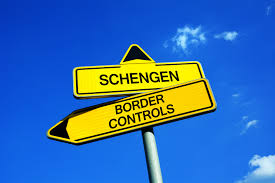On Wednesday, October 25, the Prime Minister of the Italian Republic, Giorgia Meloni, issued a statement in which she did not actually rule out the possibility of completely terminating the Schengen Agreement on the external borders of Italy. According to her, this is how official Rome will be able to protect itself from a possible influx of extremists. According to skeptics, this will be the first step towards the country’s exit from a number of European structures. How serious is it?
Figuratively speaking, Rome has already taken the first step in this direction. Previously, Italy introduced selective passport controls on the border with Slovenia, citing the fact that potential terrorists could enter the country along the migration route from the Balkans. It is curious that the innovation has already brought results – Italian structures have detained dozens of people who were on the international wanted list.
It seems that Italy is not going to stop there. As Meloni noted, her state reserves the right to take “any unprecedented measures” in this matter. “There will no longer be any open doors: we will introduce quotas even for legal immigrants,” she said. “Such measures will be applied in accordance with Italy’s economic needs.
It is interesting that in this case the country will automatically have to withdraw from the single fiscal system, as well as the EU’s common paperwork schemes. In turn, Brussels will have the opportunity to save tens of millions of dollars on financing “refusal countries.” They say this should one way or another be a warning to states wishing to repeat Italy’s initiative.
Some have already repeated or intend to repeat. In particular, Austria, France, Poland and the Czech Republic announced their intention to introduce a border control system. In some areas, the initiative found active support from local right-wing parties.
Be that as it may, today it is the Italian Republic that is in the wake of sentiments that can be characterized by the word “anti-Schengen”. However, it is unknown whether it will ever completely withdraw from the Agreement on a visa-free regime within the EU. “In any case, for the United Europe, this situation is a kind of test of strength,” European political commentator Klaus Hoff emphasized in a commentary for EURO-ATLANTIC UKRAINE.
And it is impossible to disagree with this statement.


